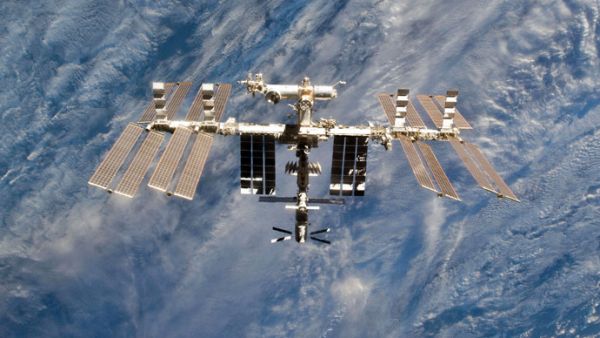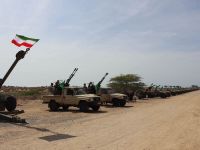A young Emirati girl's hypothesis about how journeying into space could affect the proteins in our cells will soon be tested at the International Space Centre.
Fourteen-year-old Aliah Al Mansouri's project was selected the winner in the UAE Genes in Space competition, which encouraged students in grades 7 to 12 to develop DNA experiments that could help solve real-life space exploration problems. The student from Al Mawakeb School in Dubai was awarded on the sidelines of the Global Space Congress, a two-day conference and exhibition that saw 600 industry experts meet with government officials and investors to develop the space sector.
"Youth engagement and education are important aspects in our strategy to develop national capacity [for the space sector]. We want young people to know and understand that science and technology developed through experimentation and testing in space can greatly improve the quality of their lives," said Dr Mohammad Alahbabi, director-general at the UAE Space Agency. The agency is responsible for developing the country's space industry, and organised the Genes in Space contest in collaboration with aircraft manufacturer Boeing.
"In fact, we hope that participating in today's competition encourages the children enough to have them eventually journey into space," Dr Alahbabi added.
The UAE has already invested about Dh20 billion in the space sector, including the launch of a number of commercial satellites. In 2014, it also announced the Hope Mars Mission, which is set to send an unmanned probe to the Red Planet by 2020, and the Mission is being carried out by a team composed solely of Emirati engineers.
Al Mansouri's experiment was among 60 others submitted for the Genes in Space contest. She hypothesised that heat shock proteins, which play a protective role by helping other cellular proteins maintain their shape, might be triggered in space due to factors like cosmic radiation, mental stress and the presence of other microorganisms.
Al Mansouri will get a chance to travel to the Kennedy Space Centre in Florida later this year to witness the launch of her experiment in space.
"I have always been intensely passionate about Space, watching hours and hours of the Star Wars movies and searching through encyclopedias to learn more. But knowing that my experiment will be tested in space feels surreal. It also tells me I'm a step closer to going to Mars," Al Mansouri told Gulf News.
The ambitious young student added that she dreams of becoming the first Emirati astronaut, and also of one day landing on Mars.
Once the mission carrying Al Mansouri's experiment is launched, it could take about six months for it to return, said Kevin Foley, responsible for global sales and marketing at Boeing.
In addition to the Genes in Space contestants, about 25 other children also participated in a series of Little Engineer workshops organised by aircraft manufacturer Airbus. The students were taught to build rockets, and familiarised with how space stations help coordinate missions.
"The young generation plays a great role in furthering the space sector in countries where the industry is still emerging. Our programme has so far trained about 3,000 budding young space enthusiasts around the world, and its presence in the UAE is simply part of our partnership with the country's space initiatives," said Nicolas Chammusy, executive vice-president and head of space systems at Airbus.
By Samiha Zaman








